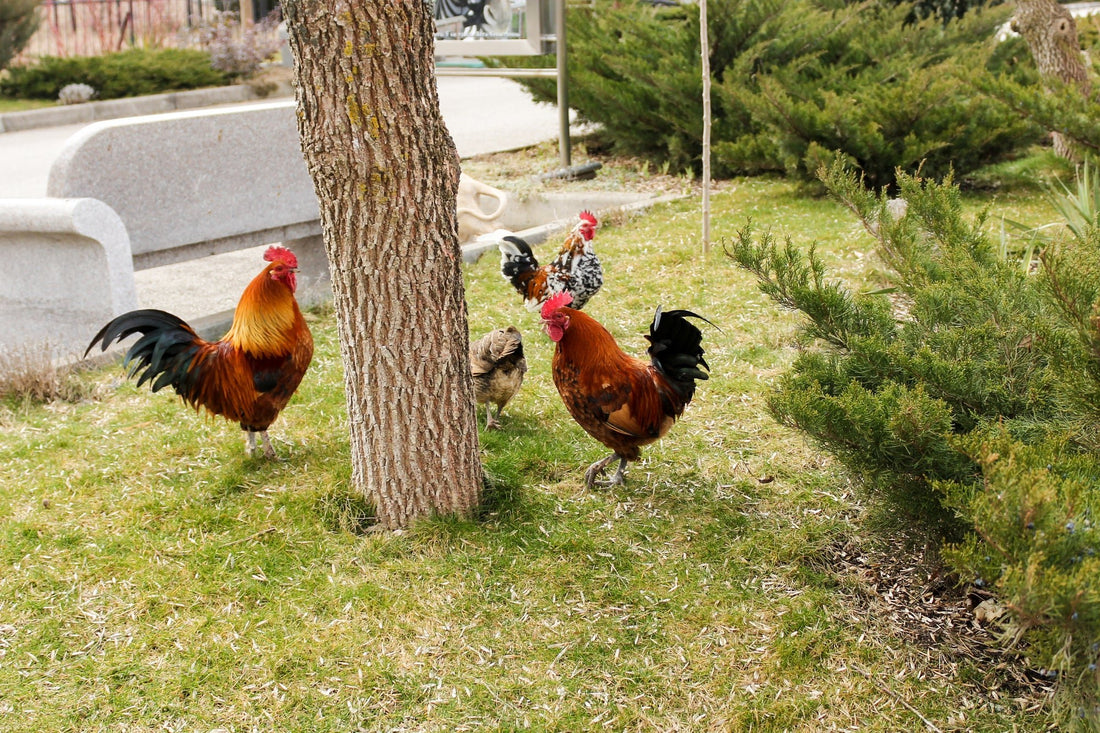With the rise of urban farming and backyard homesteading, more city dwellers are discovering the joys of keeping chickens in their own backyard. Raising chickens in urban environments offers numerous benefits, from fresh eggs and natural pest control to connecting with nature and reducing food miles. However, caring for chickens in a city comes with unique challenges and considerations. In this comprehensive guide, we'll explore essential tips and strategies for raising a happy and healthy flock of chickens in an urban setting, ensuring a rewarding and sustainable experience for both poultry keepers and their feathered friends.
Choosing the Right Breeds: Urban-Friendly Chickens
When selecting breeds for your urban flock, it's essential to choose chickens that are well-suited to city living. Look for breeds that are known for their adaptability, docile temperament, and low noise levels, making them ideal for close quarters and residential neighborhoods. Popular urban-friendly breeds include the Australorp, Orpington, Wyandotte, and Sussex, which are known for their gentle nature, good egg production, and tolerance to confinement. Additionally, consider breeds that are less likely to fly or exhibit disruptive behaviors, such as roosters crowing at dawn, to minimize potential conflicts with neighbors and local ordinances.
Coop Design and Placement: Space-Saving Solutions
Space is often limited in urban environments, so designing a compact and efficient chicken coop is essential for maximizing available space while providing adequate housing for your flock. Opt for a coop design that is well-insulated, ventilated, and predator-proof to protect your chickens from the elements and potential threats. Consider elevated or stackable coop designs to save floor space and accommodate multiple levels or tiers for nesting, roosting, and feeding areas. Choose lightweight materials and modular components that can be easily assembled, disassembled, and moved as needed, allowing for flexibility and adaptability in a dynamic urban landscape.
Feeding and Nutrition: Sustainable Options
Providing a balanced diet is essential for the health and well-being of your urban flock. While commercial poultry feeds are readily available, consider supplementing your chickens' diet with kitchen scraps, garden surplus, and locally sourced ingredients to reduce waste and promote sustainability. Incorporate a diverse range of foods such as fruits, vegetables, grains, and protein sources to ensure optimal nutrition and variety in your chickens' diet. Additionally, offer access to fresh water at all times, using spill-proof containers or automatic watering systems to minimize mess and waste. By adopting sustainable feeding practices, you can support the health of your flock while minimizing your environmental footprint.
Managing Waste: Composting and Recycling
Managing chicken waste is a key consideration for urban poultry keepers, as improper disposal can lead to odor, pollution, and sanitation issues. Implementing a composting system for chicken manure and bedding materials is an effective way to recycle nutrients and organic matter while reducing waste and odor. Choose a composting method that suits your space and needs, such as a traditional compost pile, worm bin, or bokashi system. Use composted chicken manure to fertilize gardens, lawns, and potted plants, enriching soil fertility and promoting healthy plant growth. By practicing responsible waste management, you can minimize the environmental impact of your urban flock and contribute to a more sustainable urban ecosystem.
Noise Management: Considerate Chicken Keeping
Noise can be a concern for urban chicken keepers, especially in densely populated neighborhoods where neighbors may be sensitive to disturbances. To minimize noise pollution and maintain positive relationships with neighbors, take steps to manage and mitigate noise from your flock. Choose breeds known for their quiet demeanor and low noise levels, avoiding breeds that are prone to excessive vocalization or crowing. Provide adequate enrichment and stimulation for your chickens to reduce boredom and stress, which can contribute to noisy behavior. Additionally, consider installing soundproofing measures around the coop or using noise-reducing features such as sound-absorbing insulation and acoustic panels to dampen sound transmission.
Health and Wellness: Regular Monitoring and Care
Ensuring the health and wellness of your urban flock requires regular monitoring, preventative care, and prompt intervention when necessary. Conduct routine health checks to assess the condition of your chickens, checking for signs of illness, injury, or parasites such as mites and lice. Provide access to dust baths and grooming areas to help chickens maintain healthy plumage and skin condition, reducing the risk of infestations and infections. Keep vaccinations and parasite control treatments up to date, following recommendations from your veterinarian or poultry health specialist. By prioritizing proactive healthcare and attentive observation, you can safeguard the well-being of your urban flock and minimize the risk of disease outbreaks or health complications.
Community Engagement: Sharing the Joys of Urban Chicken Keeping
Engaging with your local community is an excellent way to share the joys of urban chicken keeping and foster positive relationships with neighbors and fellow enthusiasts. Consider joining community garden projects, urban farming initiatives, or poultry clubs to connect with like-minded individuals and exchange knowledge and resources. Organize educational workshops, tours, or coop-building events to raise awareness about urban agriculture and responsible chicken keeping practices. By cultivating a sense of community and collaboration, you can promote the benefits of urban chicken keeping and inspire others to embrace sustainable and self-sufficient lifestyles.
Urban Chicken Keeping Done Right
Raising a happy and healthy flock of chickens in an urban environment is entirely achievable with careful planning, consideration, and responsible stewardship. By choosing the right breeds, designing efficient coops, practicing sustainable feeding and waste management, and prioritizing the health and well-being of your flock, you can create a rewarding and sustainable urban chicken keeping experience. Through thoughtful engagement with your community and proactive participation in local initiatives, you can contribute to the vitality and resilience of urban ecosystems while enjoying the many benefits of backyard poultry keeping.

